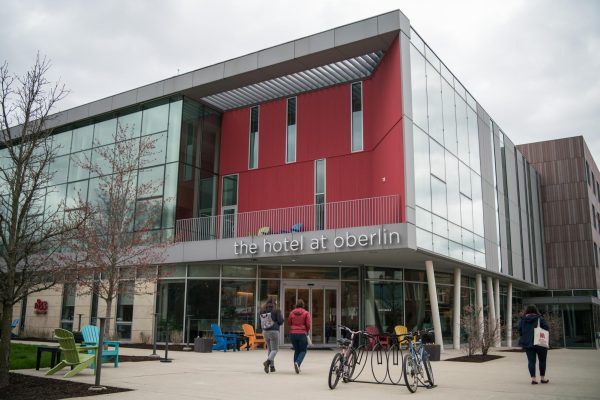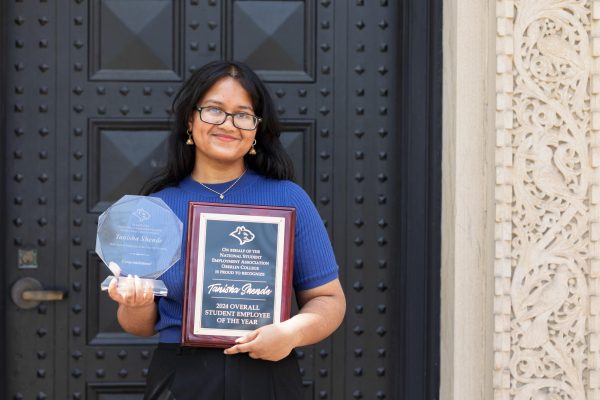Counseling Center Records Trainee Sessions
The Oberlin College Counseling Center operates both as a student support space and a teaching program that trains graduate students on how to provide quality counseling. There are currently three trainees working in the Counseling Center. As part of their training, trainees sometimes record sessions with students for their supervisors to review.
Session recordings are only ever made with students’ informed consent, and student care is not affected by opting out of recorded counseling sessions. Thorough information on the process of trainee counseling and potential recordings is provided on the informed consent form that students must sign in order to receive counseling services.
“You may request not to receive services from a graduate level trainee, and refusal will not affect your eligibility to receive services from the Counseling Center,” one line of the form reads.
Dr. John Harshbarger, director of the Counseling Center, emphasized the importance of informed consent. According to him, consent around the recording of counseling sessions is a serious matter that the Counseling Center is very thorough about. He also asserts that the Counseling Center values security and ensures that students’ information and recordings are kept confidential.
“Our policy regarding trainees is well-established, clear, and directly communicated both in writing … as well as verbally in an open and transparent dialogue,” Harshbarger, in collaboration with Counseling Center staff, wrote in an email to the Review. “All video recordings are kept on encrypted flash drives in a locked cabinet in accordance with all legal and ethical standards.”
There is an ongoing shortage of mental health professionals across the country because they are in such high demand, especially since the start of the COVID-19 pandemic. Overall, the pandemic has triggered a 25 percent increase in anxiety and depression diagnoses world wide. Oberlin, like many institutions, has struggled with this shortage.
There are currently two open counseling positions that the office has not been able to fill. Despite this ongoing shortage, the Counseling Center stresses that the use of trainees is not primarily meant to deal with the counselor shortages but rather to properly train future mental health professionals. The Counseling Center has been committed to this goal for more than 15 years.
The Counseling Center prioritizes the privacy of students when in the process of training and hiring therapists. The center is consistently processing and deleting the recordings once the trainees have been fully reviewed by their supervisors.
“Recordings are deleted every other week,” Harshbarger wrote. “The only persons who have access to these files are supervisors directly involved in the training of the supervisee.”
The video recordings provide the Counseling Center with the data needed to track progress made by trainees. The Center welcomes ongoing dialogue to better understand and address any questions or concerns about its training program.




